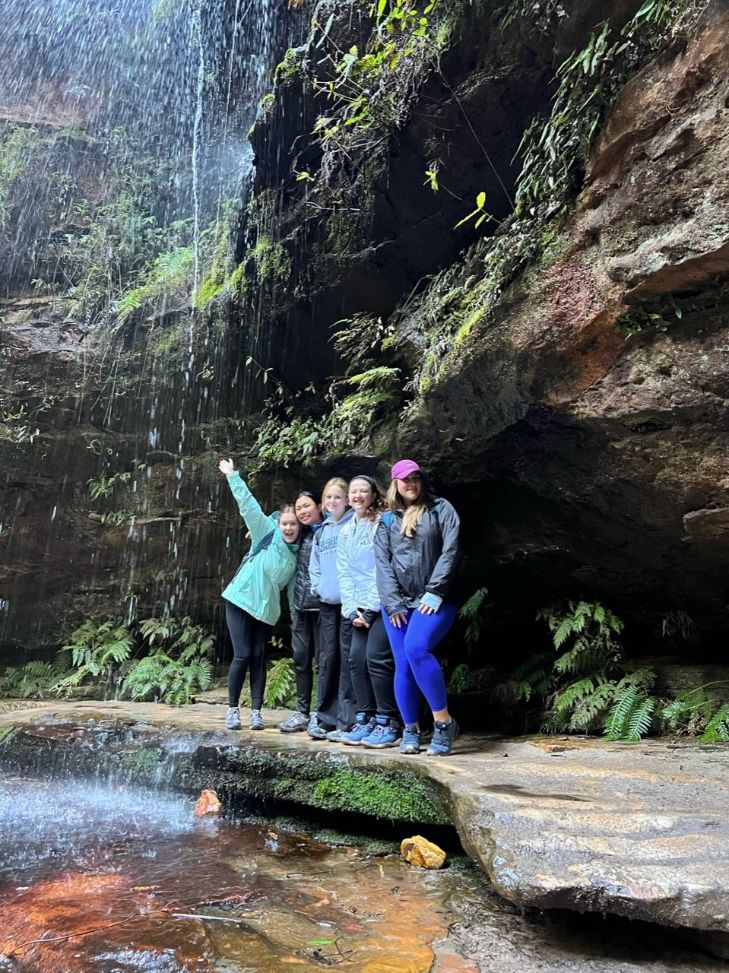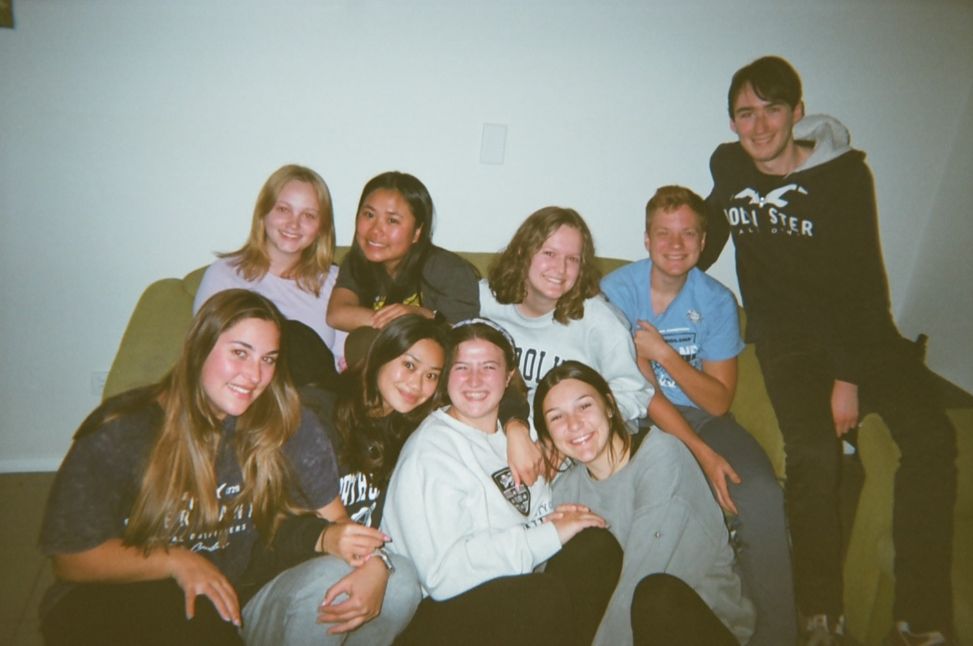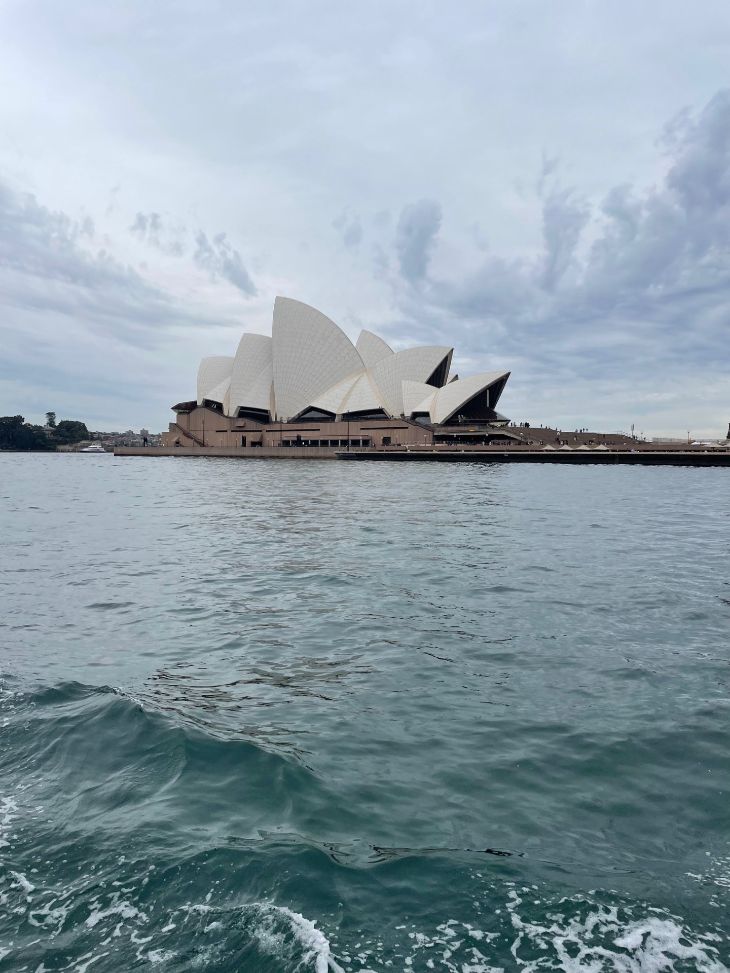Isabel Kleinpeter
About My Study Abroad Program
Major/Minor: Neuroscience Major; Minor in Chemistry and Medicine, Literature, and Culture
Program: Neuropharmacology in Australia
Location: Sydney, Australia
Email: ihk@unc.edu
Term: Summer 2023
Why did you choose to study abroad and how did you select your program?
My family and I lived in Germany from 2015 to 2018. During that time, I traveled to 18 different countries and learned to embrace new adventures with confidence. Traveling throughout Europe gave me a greater appreciation of diversity and cultural values, as well as a desire to continue traveling overseas. I felt that my time spent living abroad would help me enjoy and be successful in a study abroad program and would enable me to be a positive and enthusiastic representative of UNC.
I selected the Neuropharmacology summer abroad program in Sydney, Australia because of the subject matter and location of the program, the course instructor, and the personal and professional benefits of studying abroad. I am an Honors Carolina Neuroscience major, and I plan to attend medical school after graduation. Neuropharmacology is a course required by my major. The Neuropharmacology course was being offered by a former professor of mine and I was eager to have her teach one of my higher-level neuroscience classes. I was also interested in experiencing her teaching style in a smaller class, which would allow for more engagement between the students and the professor and looked forward to a focus on group collaboration and participation on a different scale than offered by a larger class.
I was especially interested in traveling to Australia because my grandparents lived in Sydney when they were young. Although my grandmother passed away before I was born, I grew up hearing stories from my grandfather about their travels and how life in Australia shaped them as people. The shared memories of my grandparents’ time in Sydney gave me insight into their lives and furthered my interest in visiting Australia.
Finally, I felt that participation in a study abroad program could help advance my professional development by leading to other relationships and opportunities in the UNC Department of Psychology and Neuroscience, including possible research and internship positions in the medical field. The out-of-classroom “field” experiences offered by the program would expose me to different areas of neuroscience and may spark new professional interests that help narrow my career goals. Studying abroad would also allow me to develop and strengthen valuable professional skills and lead to a more well-rounded education, which would be an advantage in applying to internship programs and eventually to medical school. I hoped to attend the study abroad program in Sydney to enhance my education through a unique academic challenge, to build lasting connections with my peers and instructors, to explore Australian culture and establish relationships with the local community, and to experience the personal and professional growth inherent in such an endeavor.
What did you learn about yourself?
After interacting with many study-abroad participants in Sydney, I learned that being a conscientious visitor and a responsible citizen while traveling overseas is extremely important to me. I believe that foreigners traveling abroad should be respectful of local customs and laws, kind to people and open to learning about their culture, careful to preserve the environment and natural landmarks, and accountable for their words, actions, and behavior. Being aware of the political and social climates of the United States and the host country, and informed of sensitive issues, will enable UNC students to be responsible citizens. Supporting local businesses and programs shows an appreciation for the culture of the host country and helps support the community. While students gain valuable experience traveling abroad, it is critical to consider what kind of impact our presence will have on local inhabitants and the impression we leave behind. These standards should be stressed to all students considering participation in a study abroad program.
I also learned a lot about my specific interests in the field of Neuroscience. The Neuropharmacology program included visits to laboratories at the University of Sydney, a trip to the Taronga Zoo to learn about native reptiles and their venom, and a tour of the Royal Botanic Gardens to learn about Aboriginal plants and medicine. In addition to providing an interesting way to physically apply the topics covered in the class, these visits allowed me to explore how researchers in Australia are contributing to drug development and the field of neuropharmacology. It also allowed me to interact with international students and medical professionals and learn how their contributions are affecting patients around the world. These experiences sparked a greater interest in the field of Neuropharmacology and will help me focus my educational and professional goals.
What is one of your favorite memories from your program?
One of my favorite memories from my study abroad session in Sydney was my first class excursion. On our second day of class, we visited the Taronga Zoo for a guided tour on the neurobiology and adaptations of Australian animals. It was so interesting to learn about animals I had never seen in person - our class stayed late until the zoo closed despite the steady rainfall. Then, after a ferry, a bus, and a train ride, we arrived at the main street near the dorms. Half of the group was too tired, cold, and wet and decided to call it a night. The eight or so of us that remained went to a little Mexican restaurant near the train station and it was one of the first times I got together with the people in my program outside of class. It was a great night, both personally and academically, learning about unique topics and making new friends.
What advice do you have for future study abroad students?
My main piece of advice for future students thinking about studying abroad is to understand that everyone around you is going through the same thing. Whether you are worried about the flight over, concerned about managing classes while abroad, or just homesick - someone is almost certainly feeling the same way as you. Don’t be afraid to ask for help from your instructors, in-country contacts, or other students. Sharing this common experience strengthens the connection between you and other students studying abroad and helps to build the foundation of a unique and lasting relationship.
Memories





